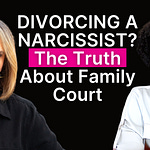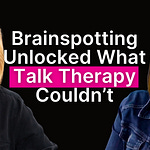The Invisible Scar: Unpacking Betrayal Trauma with Mr. Jay
Welcome to a new deep dive from Flip Your Mindset, where we don't shy away from the tough conversations that truly impact our lives. In our latest episode, I had the privilege of sitting down with Mr. Jay, a certified betrayal trauma practitioner and intra-personal relationship coach, whose insights into the silent suffering of betrayal trauma are nothing short of profound.
You might think you understand "trauma," but betrayal trauma, as Mr. Jay explains, is a beast of a different color. It's not just what happens to you; it’s about who it happens at the hands of – someone you implicitly trusted.
The Bridge That Collapses Beneath You
Mr. Jay paints a powerful analogy: Imagine walking across a thin bridge, a mile above blazing fires and volcanoes, with your most precious loved ones in your arms. The smoke blinds you, and you instinctively reach for the hand of the person you trust more than yourself to lead the way. Then, without warning, the bridge collapses, and you realize the person you trusted most was holding the hammer. That, he says, is the feeling of betrayal trauma. Your mind is hijacked, you’re in primal panic, and you die emotionally, mentally, though not physically.
This isn't just about spousal infidelity, though that's a common example. Betrayal trauma can come from a parent, a child, a boss, or even institutions like the medical or legal fields where you place your reliance and trust. It's a feeling of hopelessness, helplessness, and disempowerment that ravages your mind, body, and soul.
The Secret Society of Suffering
One of the most isolating aspects of betrayal trauma, as Mr. Jay highlighted, is that it’s often a "secret society". Unlike other traumas where you might receive public support or bereavement leave, there's no "broken heart time off" when you discover infidelity. The shame and embarrassment mean many suffer in silence, feeling utterly alone.
What's more, while other traumas affect the present and future, betrayal trauma uniquely "also affects the past". Your photo albums, familiar streets, and restaurants are tainted, robbing you of cherished memories. And it's deeply personalizing – leading to the painful question, "Why wasn't I good enough?".
Betrayal Blindness: Our Brain's Double-Edged Sword
We often ask ourselves, "How could I have been so blind? I'm smart!". Mr. Jay explains the concept of:
betrayal blindness, a term coined by Jennifer Freed. It's a part of our fight, flight, freeze nervous system, serving as our body's way of protecting us in the moment. Like Little Red Riding Hood ignoring her gut feeling to see her grandmother , we ignore red flags because the reality is too painful to accept. This temporary safety mechanism ultimately becomes our "worst enemy" , leading to self-disconnection and a more complex healing journey.
The Wounds of the Betrayer: A Difficult Truth
Perhaps one of the most challenging truths we discussed is this:
"People with wounds are the ones that have affairs." Mr. Jay firmly states, "I've never worked with somebody that had an affair that was happy, healthy, and healed". This doesn't excuse the behavior – absolutely not. But it offers a crucial perspective that hurt often begets hurt. Often, betrayers are seeking to "numb, distract, avoid, cope" or simply to "feel seen" and "feel alive" , grappling with their own unhealed wounds.
The Path Forward: From Venom to Wise Trust
Healing from betrayal trauma is not about quick decisions. It's a journey that requires building a strong support system, conducting a needs assessment, and developing a "10, 10, 10 plan" for your future.
A critical step is understanding and setting boundaries. Mr. Jay suggests starting by identifying your core values and inverting them into boundaries. Boundaries aren't about controlling others; they're about holding ourselves accountable. This process builds self-worth, self-image, and self-love, which are essential for making healthy decisions.
Perhaps the most empowering takeaway is this: you must take 100% responsibility for who you are and how you show up in relationships, but take zero responsibility for someone else's choice to betray you. They had other options.
As Mr. Jay wisely puts it, "Nobody has ever died from a snake bite. What people die from is when the venom gets into their veins and gets to their heart". The work of healing is to prevent that venom from permeating your entire being.
Our brains are malleable and can heal. While we may not "completely heal" in the sense of erasing the experience, we learn to "manage trauma".
The blessing lies in developing "wise trust" instead of blind trust and experiencing post-traumatic growth – becoming stronger, more realigned, and more purposeful than before the trauma.
Connect with Mr. Jay for more resources and support: mrjayrelationshipcoach.com














Share this post